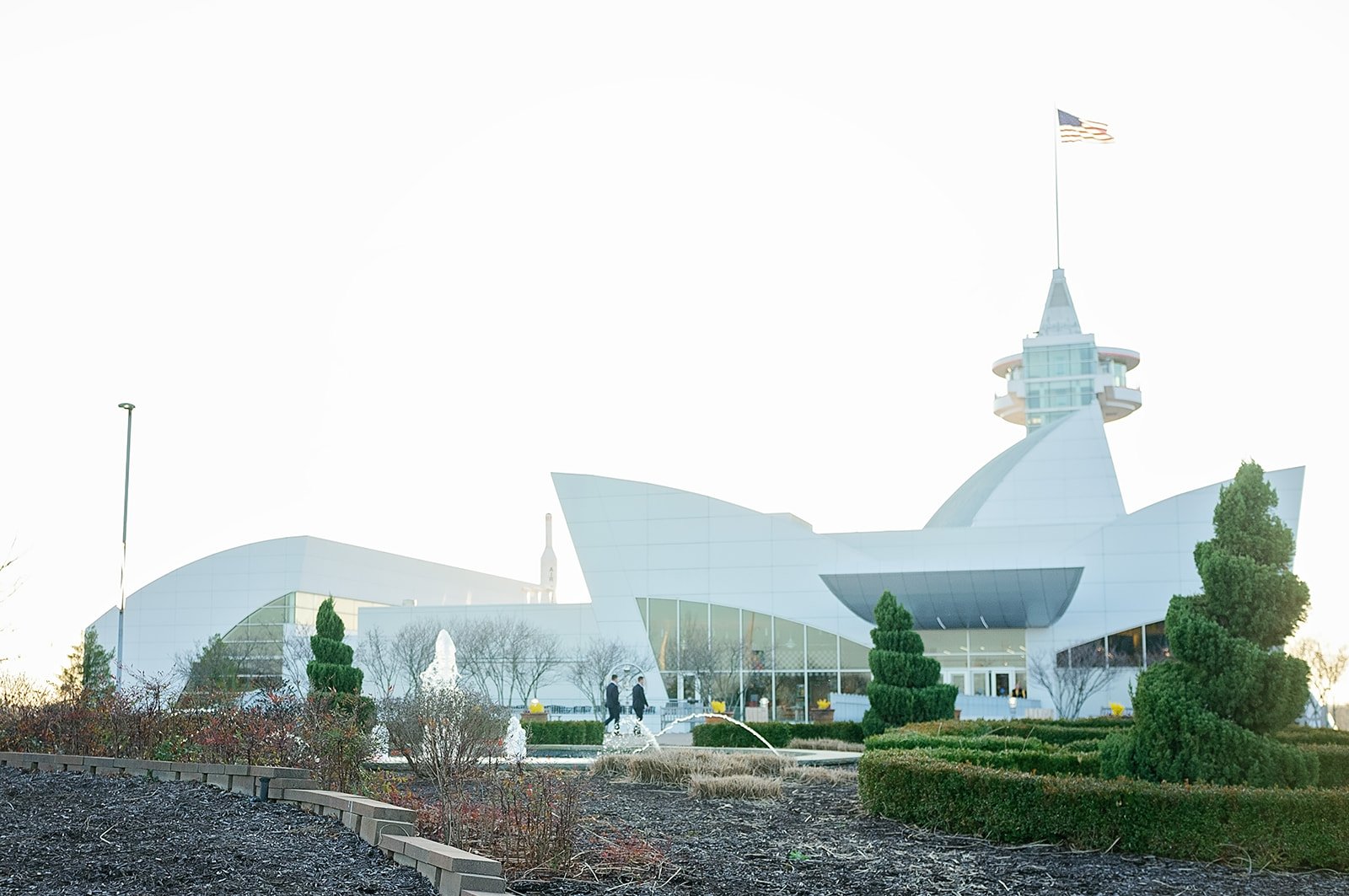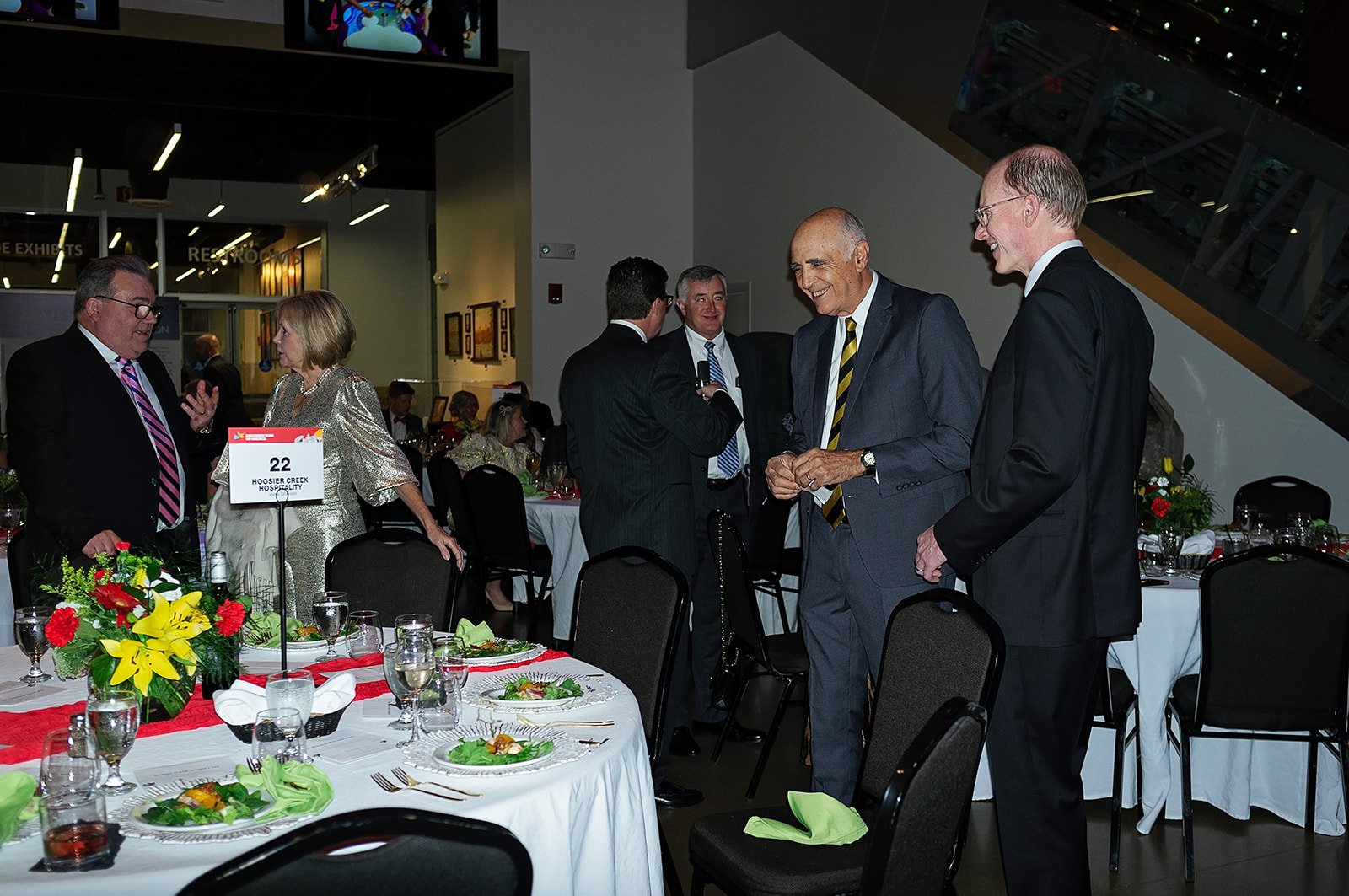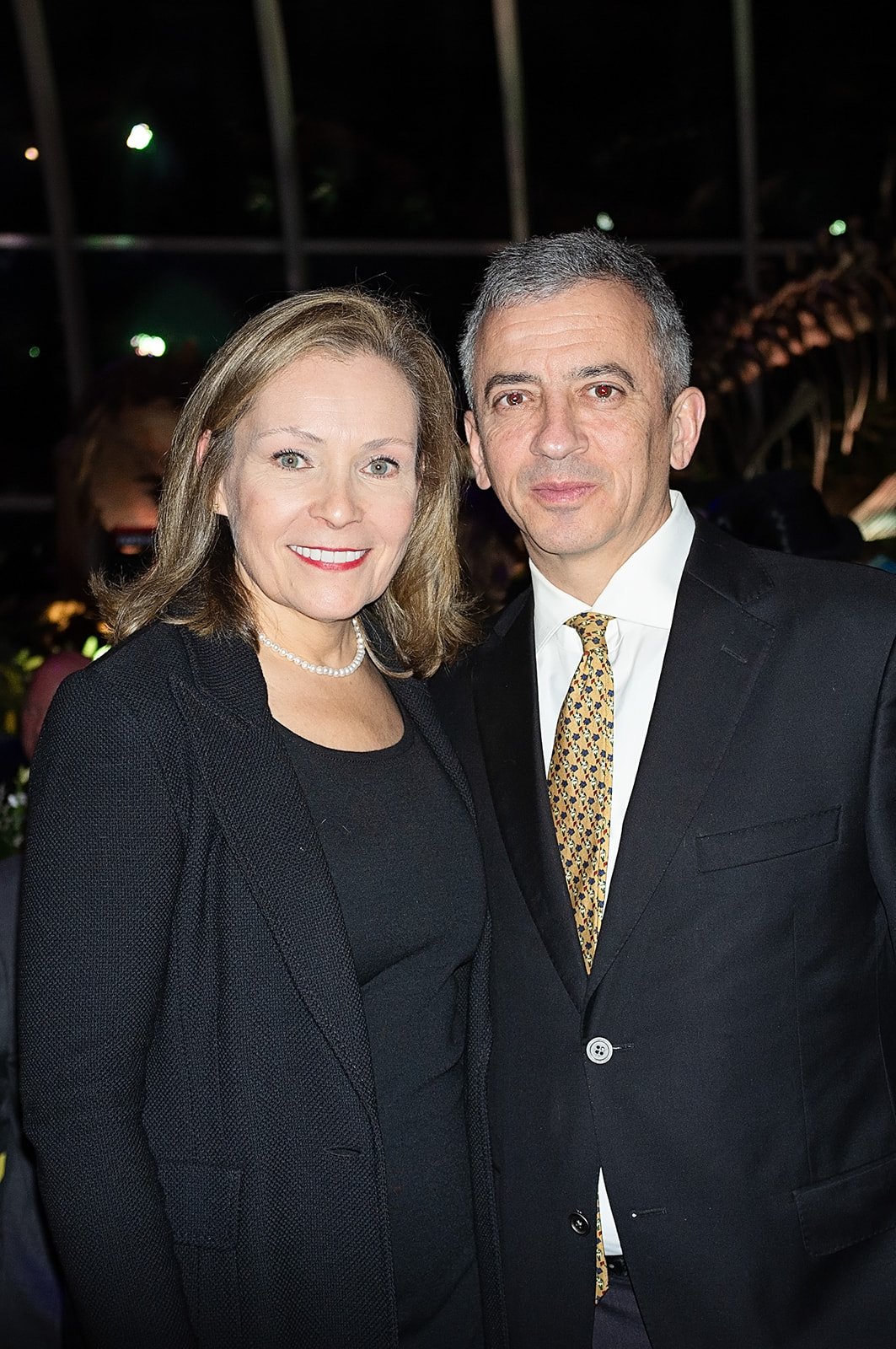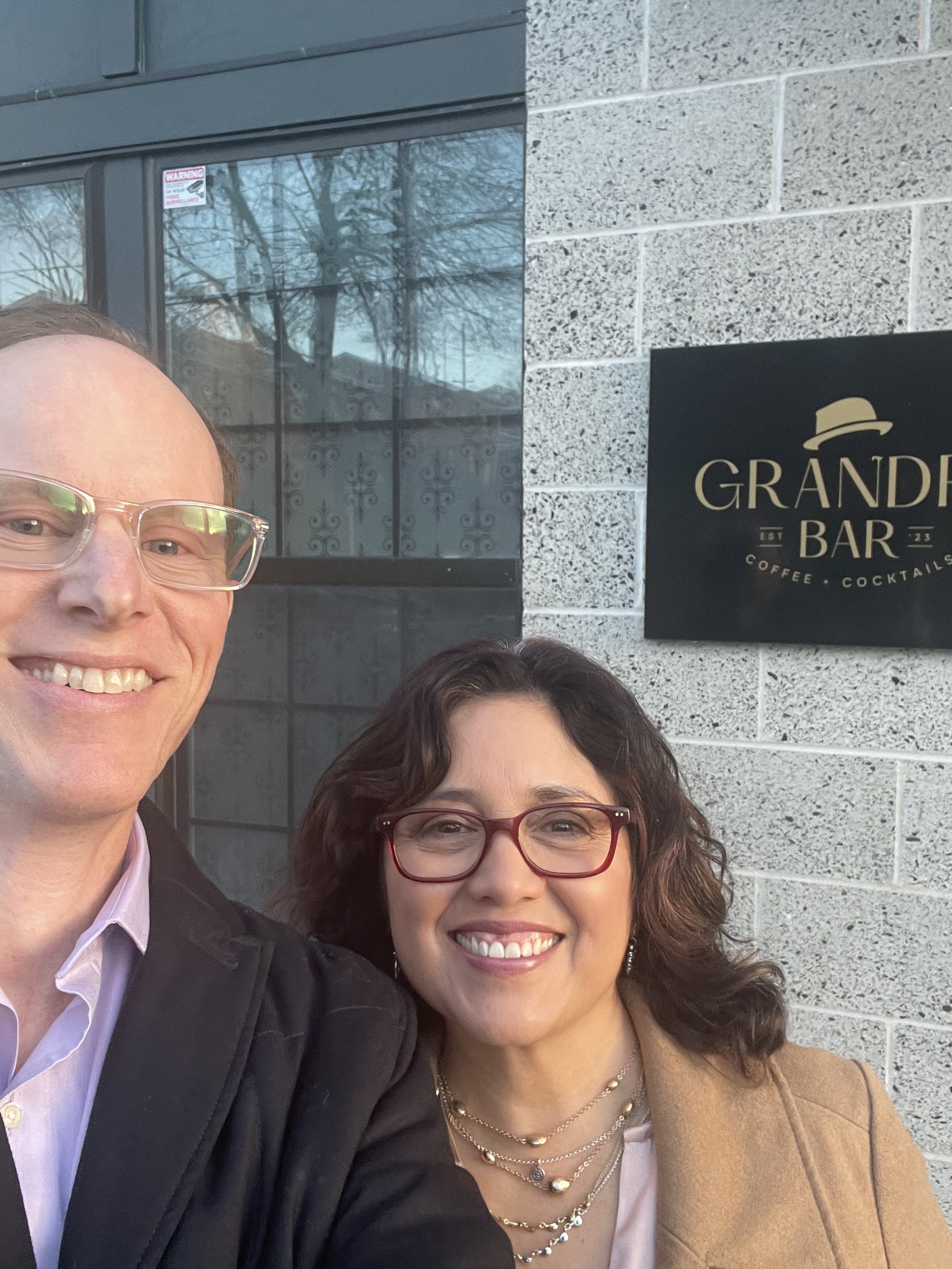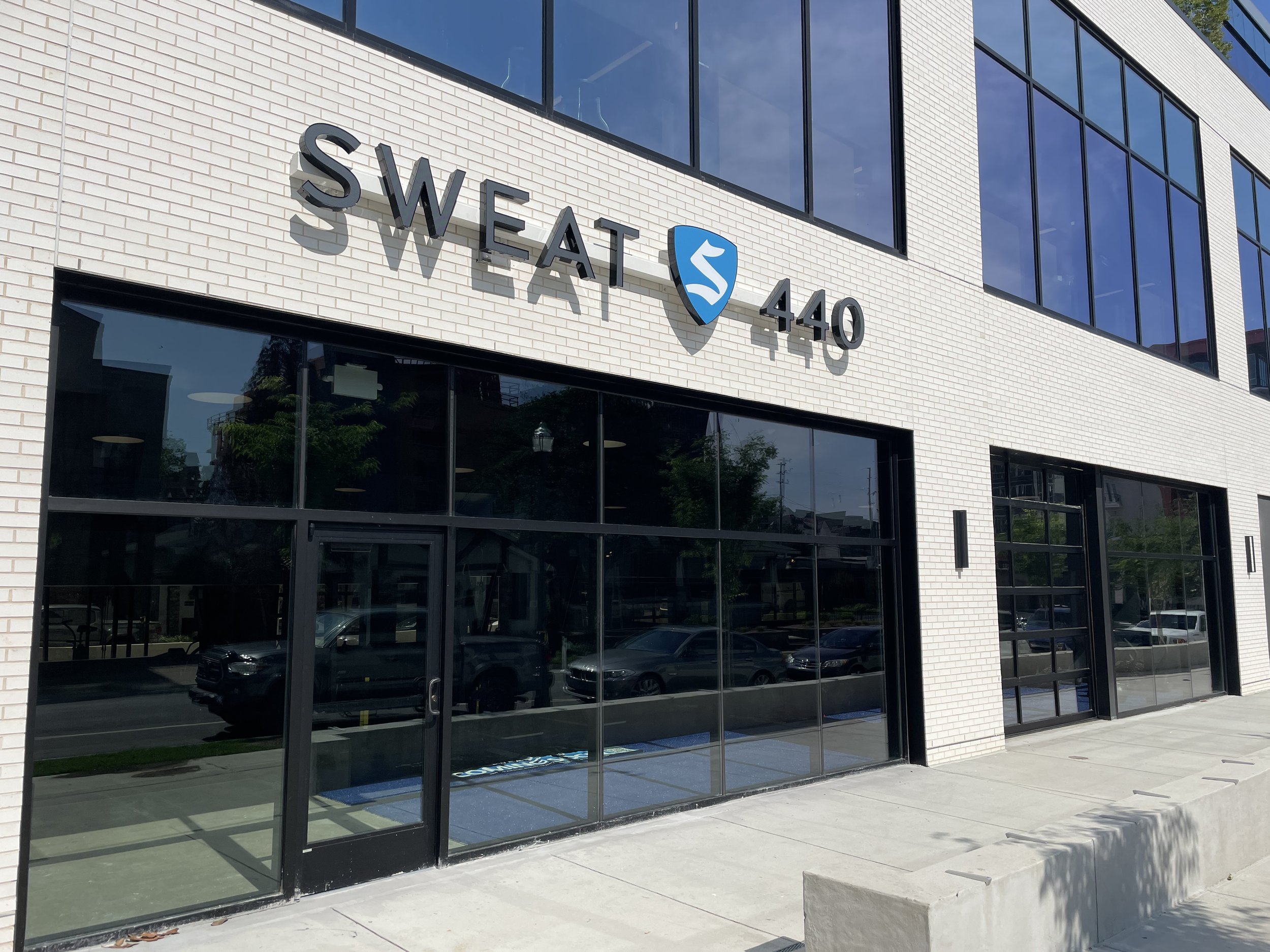Discovery Park of America Gala
There is a place in Northwest Tennessee that will blow your mind. It’s got a rocket ship, an airplane, frontier homes, a giant robot slide, train cars, a stuffed bear, dinosaurs, and much, much more.
Discovery Park of America
There is a place in Northwest Tennessee that will blow your mind. It’s got a rocket ship, an airplane, frontier homes, a giant robot slide, train cars, a stuffed bear, dinosaurs, and much, much more. There’s a 100,000-square-foot museum full of artifacts and immersive experiences, sitting on a 50-acre heritage park. Each year, this unique place sees 250,000 visitors come through its doors—and this in a town of less than 12,000 permanent residents.
A few weeks ago, Chandler James Retail Team attended the Robert E. and Jenny D. Kirkland Discovery Awards Gala and Fundraiser for Discovery Park of America in Union City, TN. We had a blast! It was a wonderful experience, seeing the facility and visiting with many of the attendees. Most significantly, we connected with the folks at Premier Hotel Group and are now working with them on a project in Tifton, GA (more details soon to come).
Lee Ann grew up in Union City, is CEO of the regional supermarket chain E.W. James, and knew a lot of the folks there from way back. I, on the other hand, was getting my first real exposure to Union City, and color me impressed! Please see below for additional photos from a very special night at the museum.
Event Nights at Grandpa Bar
The Saturday after Valentine’s Day, my wife and I went to Grandpa Bar at Apex Marathon Village for a perfectly balanced variety show
Singer-songwriters Grace Day and Brooks West
The Saturday after Valentine’s Day, my wife and I went to Grandpa Bar at Apex Marathon Village for a perfectly balanced variety show: first, singer-songwriters Grace Day and Brooks West entertained the crowd with tunes ranging from the poignant to the quirky and irreverent; then, a lineup of a half dozen hilarious standup comics all killed. Have you ever been someplace and as soon as you stepped inside, you felt as if you’d completely left the outside world behind and were now Someplace Special? The theme was “Cupid’s Variety Show.” The lighting, the music, the tables, the just-right buzz of conversation—those delicious cocktails and mocktails . . . It was, indeed, a night to remember.
Please follow Grandpa Bar on Instagram for upcoming event nights. This is a great date or night-out-with-friends spot in a Nashville neighborhood that’s really going to be taking off during the next couple years. Lee Ann James and I are excited for our client, Grandpa Bar Owner Mike Rosenthal, and for Marathon Village, which now gets to claim this gem of a place as its own. See below for more photos from a fun evening!
Suburban Strip Mall Investment in Greater Nashville
Middle Tennessee is a great place for real estate investors to focus on strip malls.
Franklin, TN
Middle TN Strip Malls as Investments
Middle Tennessee is a great place for real estate investors to focus on strip malls. Throughout 2023, the area’s suburban strip mall investments displayed impressive growth, driven by multiple factors. The current vacancy rate for Greater Nashville’s strip centers is an amazingly low 1.7% and market rent at strip malls is in the high $20s per SF. Even in emerging, more rural submarkets such as Robertson and Dickson County, you’re now seeing retail asking rents in the high teens and vacancy rates even lower than Nashville proper. (Costar)
One of the key drivers of success for suburban strip malls in the Nashville area is the city's continuous residential growth. Jobs keep coming; people follow the jobs; and cities and towns around Nashville continue to expand. SmartAsset looked at population data for the nation’s 344 largest cities, and two in the state of Tennessee ranked within the top 25 for fastest growing: Murfreesboro (number 16) and Clarksville (number 25). Prime suburban locations such as these, strategically situated near major traffic arteries, have experienced heightened growth and consequently leasing activity. The rental rates for strip malls in these sought-after areas have surged, but “fixer uppers” are still out there.
Adam Tepman, the artist formerly known solely at StripMallGuy, gets it. In an interview with Kyle Mathews late last year, Tepman mentioned he likes to say his “favorite anchor is a busy street.” And when people bug him about where are the credit tenants, he answers “the credit is that’s the person’s college fund for their kids.” These strip malls dotting small-to-medium sized towns across the country are the lifeblood of their communities. Yes, there are some national tenants in the mix as well, but for the most part, this is small-business America.
Retail Post-Pandemic
Post-pandemic, strip center investment is especially attractive, because after a time of people being told to stay home and away from others, they are now more appreciative than ever of the in-person shopping experience. They may still be doing hybrid work, but on their lunch break and afterwards, they are hitting the stores.
And, man, are they eating out! According to the Site To Do Business, in the Greater Nashville area, over 40% of adults said they go to a fast food restaurant 9+ times per month. Chaching, Mr. and Mrs. Subway Franchisee!
So, as you are considering your next real estate investment, along with residential flips, land banking, and other popular choices, think about going just a little bolder and purchasing your first small strip center. Explore partnering with someone who’s been there/done that and can help you look for ways to add value and improve rental income over time. This can be a wonderful source of income for many years to come.
Restaurant Spaces
The restaurant biz in Music City has been anything but dull of late . . .
17th + Grand, soon to be home to Nashville’s first High Point Coffee location
The restaurant biz in Music City has been anything but dull of late. During covid, savvy fast-casual operators did quite well, accommodating people who were cooped up and wanting easy meal solutions and a quick break from their own surroundings. For sit-down dining, however, it was a different story, and some good restaurants sadly went under. Then came high inflation. And labor struggles. No one ever claimed the restaurant business was easy, and that’s been painfully apparent these last several years.
And yet, new concepts continue to enter the market. And previous success stories continue to expand. No one ever said that life was gonna be easy, but where there’s a will—and a handful of really good recipes—there’s a way.
The greatest challenge for restaurateurs these days is rising expenses. Even in outlying areas such as Bellevue and Donelson, the monthly passthroughs alone are in the thousands at triple-net properties (which the majority now are). Base rents have gone up considerably in recent years as well. As reported in our last post, the Greater Nashville average retail rent is $28 per SF, but at midtown and downtown properties, the asking rents are from the mid $30s to low $40s per SF, and recently we received confirmation that there are actual, not asking, rents being collected in the 12 South neighborhood that are above $100 per foot.
Grandpa Bar at Apex Marathon Village
All of that stated, unlike a couple years ago, there are a fair number of second-gen restaurant properties now available for lease. To be exact, 26 came up during a recent Costar search (filter: retail; secondary type, restaurant), and we know of at least a couple that for whatever reason weren’t included in this list. Therefore, you have to figure that market forces will kick in sooner or later, especially at some of the older and early-emerging properties, and for the patient, there will be deals.
The following is a quick recap of some Nashville area-based restaurant closings, news stories, and openings/expansions during the latter part of 2023 and the kickoff to 2024. If you are in the restaurant business and Chandler James Retail Team at Lee & Associates can be of help, please see our info on our Contact page.
Closings:
McCabe Pub on Murphy Road is shutting its doors after being in business for over 40 years. Nashville’s Dean family owns the property, and according to the Nashville Post, Avison Young will market and list it for lease, but at the time of writing, there is still no information on Costar.
East Nashville vegetarian favorite Wild Cow closed its doors at the end of December, after a 14-year run. As reported in the Nashville Business Journal, rising rent and food costs were cited by the restaurant as the primary reasons.
Josephine’s in 12South, led by renowned chef Andrew Little for ten years, ended its run just before Christmas.
Lee and Melissa Broadwell closed their Germantown location, Taylor Street Coffee & Tea, after six years to focus on a new venture, The Flower Kitchen, in Franklin.
Franklin-based A. Marshall Hospitality is closing two of their restaurants, Americana Taphouse and Burger Dandy. According to Nashville Business Journal, A. Marshall Hospitality “is one of the largest restaurant groups in Nashville . . . with nine locations as of August.”
Celebrity chef Maneet Chauhan is closing her North Gulch restaurant Tansuo, a Morph Hospitality concept, citing ongoing losses since the pandemic.
News:
Music City’s beloved Arnold’s Country Kitchen: The restaurant closed after a decades-long run, and the building went under contract. Then, that sale fell through, and Arnold’s reopened earlier this month—but only temporarily. According to owner Khalil Arnold, they are actively searching for a new home. Stay tuned.
Nashville hot chicken chain Party Fowl filed for Chapter 11 bankruptcy protection on January 9. In addition to the headwinds that all other restaurants in high-rent areas are facing, the Post and NBJ report that the two most recent Party Fowl openings, farther away from the other four in Chattanooga and Destin, have struggled thus far.
Openings/Expansions:
An investment group that includes Crazy Gnome Brewery owner Grayson Miller has purchased a second East Nashville property for a larger facility, according to reports in the Post and NBJ. This one, located at 1005 W. Kirkland Avenue, will be large enough to begin canning. Miller says that the soonest work would begin on this facility would be late 2024. This property sits on almost a full acre of land. In mid 2024, Miller also plans to open a cidery in Nashville. Reported by William Williams in the Post, “Miller will operate Cyanide Cider at 410 Woodbine St., which sits one block west of Nolensville Road in the heart of the Woodbine commercial district.”
Amaranth Hospitality Group (Butchertown) has opened a new concept, this time in Wedgewood-Houston, called Mercado. The food is “coastal Mexican,” and it prominently features a raw bar. According to Costar, Mercado by Butchertown occupies a whopping 13,423 SF.
Those Slim and Huskey’s guys keep growing and expanding with a new location at The Factory at Franklin. And Holladay Properties has been very busy at the large, adaptive resuse development signing restaurants. Other notables coming to the Factory are Etch’s second location (5,000 SF), a new Hattie B’s Hot Chicken, and an Edley’s Bar-B-Que.
CJRT client Grandpa Bar opened in Q4 of last year and has taken off like a coffee-and-cocktail-fueled rocket. Mike Rosenthal’s first F&B concept in the market is offering innovative drinks and regular live events such as songwriter showcases and comedy nights at Apex Marathon Village. Look for more F&B retail to move into this growing neighborhood as additional mixed-use developments go up.
High Point Coffee, based out of Oxford, MS, is putting down roots in Music City. Another Chandler James client, High Point will be opening their first store on the ground floor of 17th + Grand in the first half of 2024 and plan to open more Nashville area locations later on. There’s also one space still available on the retail floor of this beautiful, class A office building on Music Row, and they are holding out for a nice sit-down restaurant there.
Make A Play Hospitality is singlehandedly trying to create a vibrant, entertainment district in Hillsboro Village. According to NBJ, “the owners of Supper Club on Belcourt and Bungalow10, will open its third Hillsboro Village hospitality project next month.” Speakeasy style Jar Cocktail Club on Wedgewood will be a full-fledged dance club with fog machines, strobe lights, and the whole nine yards, set to close at three AM on Fridays and Saturdays. Party on, Nashville!
Retail Humming Along in Music City
According to Costar, retail is a rock star property type in Music City. In Nashville, the retail vacancy rate is a low 3.2% (compared to 4% nationally), and non-mall retail vacancy is just above 2%.
Grandpa Bar at Apex Marathon Village
According to Costar, retail is a rock star property type in Music City. In Nashville, the retail vacancy rate is a low 3.2% (compared to 4% nationally), and non-mall retail vacancy is just above 2%. (With a current vacancy rate of a whopping 18.1%, the Nashville mall sector is significantly worse, but indoor malls are struggling all over the country, so this is to be expected.) Nashville continues to have robust tourism, a growing population, and new retail development that has kept to a modest pace. Consequently, retail is poised to perform very well for at least a while longer. It is unlikely that there will be oversupply in the Nashville area retail market in the near term.
At the time of writing, Nashville’s average market rent per SF is about $28. This is compared to the national average of $25 per SF. Anyone in retail leasing will tell you, though, that at newer properties in trendy areas such as the Gulch and 12South, asking rents can be double this amount, and rents in some of the hot developments in the suburbs, such as the Factory at Franklin, are creeping up as well.
Retail is performing strongly nationwide. As of Q3 2023 through November, not one of the 54 MSAs profiled in the Mueller Real Estate Cycle Monitor has tipped over into hypersupply or recession. All of this, of course, is great news for landlords; however, it poses fiscal challenges for tenants, as they they attempt to get into retail space at reasonable rates. As much as ever, it behooves tenants to get qualified representation that really knows the market they are entering into.
Sweat440 Music Row
High Point Coffee, Oxford MS
In 2023, Chandler James Retail Team assisted multiple concepts that were entering the Nashville Market for the first time, most notably Oxford, MS based coffee shop High Point Coffee; Marathon Village’s new coffee-and-cocktail concept Grandpa Bar; and the growing fitness franchise Sweat440, with two new locations on Music Row and in the Gulch. We were successful in getting them competitive rates and terms, and all three are proving to be big wins not only for the tenants but for the landlords as well.
We are very excited to be joining a new firm, Lee & Associates Nashville (more about this in a later post) and are looking forward to big things again in 2024. Happy New Year, Nashville!
What is a 1031 Exchange?
Whether you are still fairly new to real estate investing and own only one property, or you’ve been in it a while and have built up a portfolio, one beneficial strategy for tax deferment and leveling up is what’s known as a 1031 exchange.
Whether you are still fairly new to real estate investing and own only one property, or you’ve been in it a while and have built up a portfolio, one beneficial strategy for tax deferment and leveling up is what’s known as a 1031 exchange. When properly utilizing a like-kind exchange to trade properties, you aren’t required to recognize a financial gain under Internal Revenue Code Section 1031. And an exchange can be considered “like-kind" just as long as you are purchasing a property (or properties) of equal or greater value, and you are exchanging investment property for investment property. A primary or secondary home could not be part of this equation.
Photo by Henry Becerra on Unsplash
For example, you could purchase your first small rental house for $320,000, sell it two years later for $410,000, and pay zero capital gains on the profit, just as long as you put that money right back into another investment property: a duplex; a farm; a small retail center; two rental houses with a combined price that exceeds the sale price of the relinquished property; a commercially zoned home, etc. And when you later turn around and sell the replacement property, you can do the same thing again, kicking the tax bill down the road over and over until you finally move on to that great pearly-gated community in the sky.
The Rules
First and foremost, hands off the money. You cannot hold on to the proceeds from the sale of property #1, while you wait to purchase property #2. If you do, then you can kiss the opportunity for a 1031 exchange goodbye. Instead, you must place the funds with what’s known as a “qualified intermediary”: usually an accountant or attorney, who holds onto the funds until they go directly toward the purchase of the replacement property.
Second, there is a ticking clock. This starts upon the sale of property #1, and you have 45 days beyond closing on the relinquished property to identify up to three like-kind properties that could take its place.
Another deadline that’s triggered upon relinquishing property #1 is a 180-day period for closing on the replacement property. And just as the 45-day ticking clock is strictly enforced, this one is as well.
Finally, both the relinquished property and the replacement property must be located in the U.S. So, no trading for an Airbnb in Italy unfortunately. You’ll have to find something with similar appeal on this side of the pond.
Photo by Towfiqu barbhuiya on Unsplash
The Exceptions
What’s known as the 200% rule allows one to identify more than three replacement properties, just as long as the combined value of said properties does not exceed 200% of the sale price of the relinquished property.
And then the 95% rule allows more than three replacement properties to be identified and the combined value can exceed 200% of the relinquished property’s value, but 95% of these properties must close. So, more ability for inclusion, but pretty tricky to pull off. In other words, you could identify four properties, instead of just one from a pool of three candidate properties, to take the place of the small rental house from the first example (let’s say each has a price of $400,000), but if you didn’t close on all four, the deal would not qualify for a 1031.
It is crucial for all the rules and exceptions to be followed very strictly if a seller wishes to take advantage of the tax benefits of a 1031 exchange. Current tax law allows for this process to be repeated multiple times during an investor’s life, and if the properties are owned at the time of death, then the tax bill never comes due. The beneficiary of the properties receives them with a “stepped-up basis,” meaning the new owner could sell them immediately and pay little or no taxes.
Using a 1031 exchange is a strategic process, and obviously it behooves the seller to get an agent involved early, well before closing on property #1, so that he or she can be actively assisting in identifying those replacement properties. And one should always consult with a CPA and attorney at important points throughout the process, and if not certain whether a like-kind exchange is even the best way to go, then check with your financial planner before beginning any other due diligence.
A 1031 like-kind exchange is one tool in an investor’s tool belt that can provide an opportunity to maximize gains and really expand a portfolio. It’s also one of Uncle Sam’s best ways for spurring investment in real estate.
Commercial Leases: A Few Things to Look Out For
Although we always recommend that prospective tenants work with a commercial real estate agent (as well as a commercial real estate attorney) when negotiating leases, it is good to be an informed consumer and know some things to lookout for when entering into a deal.
Photo by Scott Graham on Unsplash
Although we always recommend that prospective tenants work with a commercial real estate agent (as well as a commercial real estate attorney) when negotiating leases, it is good to be an informed consumer and know some things to look out for when entering into a deal. A typical commercial lease in a market like Greater Nashville is for at least five years during the base term and requires significant startup and maintenance costs beyond the base rent. Starting a brick-and-mortar business is expensive. Oftentimes, it is the only viable way to go, but one should know everything that’s involved and be sure that both the timing and the deal are the right fit for one’s business. The following paragraphs included some things to be aware of during the lease-negotiation stage. This is not a comprehensive list, but does include some key things you will want to focus on, beginning at the letter of intent (LOI) stage.
Lease Structure
What kind of lease is this, anyway? There are multiple, common lease structures you will encounter in the marketplace, and this is one of the first things you’ll want to keep in mind as negotiations begin. Although you can push back and try to negotiate most every aspect of a commercial deal, this is one that is usually firmly in place from the outset. It’s the foundation of the deal that everything proceeds from. Lease structures include:
Triple Net (NNN) Leases: This lease structure has become incredibly common, and there are more of these listed in the Nashville market than any other type. In a triple-net lease, one is paying not just the base rent, but also the triple nets: property taxes, insurance, and common area maintenance (CAM). So, in a typical listing, you’ll see price per square foot (per year); you will see “NNN” (meaning it’s a triple-net lease); and you may or may not see an estimate of what those passthrough expenses will be. Let’s say the NNN are listed, and the number is $10 per square foot, and the base rent is $30 per square foot. To calculate the monthly rent for this space, you would add the base rent and the NNN then multiple by the number of rentable square feet (RSF) and divide by 12. Therefore, if the example space has 2,000 RSF, the formula would look like this:
$30 + $10 = $40 x 2,000 = $80,000/12 = $6,667 per month
Full-Service Gross (FSG): In a NNN lease, not only are you paying the base rent and triple nets, you are also paying for utilities and the majority of the maintenance. In contrast, FSG leases have everything covered. This makes for a very simple formula (price per SF x RSF / 12 = total monthly expenses for the space), and that is one of its advantages. It is very straightforward. But make no mistake, the landlord is going to be sure that he or she is more than covered when it comes to all the expenses and operating costs. This lease structure may be easier for budgeting purposes, but that doesn’t necessarily mean that it’s the best value.
Modified-Gross Lease (MG): Many non-institutional landlords and landlords in smaller markets have some form of modified-gross lease. In an MG lease, it is going to be a kind of hybrid between NNN and FSG. Example: The landlord may pay the property taxes, insurance, and the majority of the CAM, but require that the tenant pay the utilities and most of the maintenance costs. An MG lease is a reminder that when it comes down to it, an owner/landlord can set things up pretty much any way that he or she wants when structuring a commercial deal.
Photo by Venti Views on Unsplash
Base Rent and Length of Term
Base rent is one of the main areas that can be negotiated on. What are the chances that you will be able to get a better rent rate than the one the agent has quoted you? It depends. How competitive is the space to get into? Do they truly have it priced correctly? How badly does the landlord want you and your business in there? It never hurts to try a lower number, and a good commercial agent with a firm understanding of the market knows where the reasonable starting point is going to be. Another factor a landlord is going to consider is preferred term length. If you are looking for a term of one to three years, that could be a non starter, but if you are willing to sign up for seven to 10 years, then that could be a trigger for a few landlord concessions (again, if they really want you there).
Financials
In a commercial real estate market like Nashville, landlords can be extremely cautious and selective about whom they allow to occupy their spaces. More often than not, they are going to want to see some financials: P & L reports, tax returns, credit scores—anything is fair game. They are also going to want some kind of guarantee that they are going to get their money, especially if they’re having to pay out any tenant improvement allowance (TIA) or broker commissions in order to get the deal signed. Don’t be surprised if you are asked to sign a personal guarantee, take out a letter of credit, or put down a fairly large security deposit. All three of these methods of securing a lease are common. Think of it this way: If you were a landlord, and you were considering a new tenant for your valuable asset, especially one that isn’t a corporate-backed, wouldn’t you want some added assurance that the investment was going to pay off? However, as with other aspects of the negotiation, this is a two-street, and prospective tenants are only going to want to give so much in this regard. When negotiating with a landlord, it helps to have someone on your side who is capable of thinking like one!
Photo by Leonardo Zorzi on Unsplash
Escalation Clause
A rent escalation clause always the landlord to increase the rent rate over time. Every lease has one. The way they are structured, though, varies widely. Some are 2% annually; some are 3%; some are tied to the consumer price index (CPI). Some do not increase annually, but adjust to market rent upon renewal. Look for this clause in the lease you are considering signing. It’s also usually included at the LOI stage, so you will know what the landlord is thinking here early on. If you aren’t comfortable with the escalation schedule consider choosing this as one of the deal terms you push back on.
As previously mentioned, there is much more to a commercial lease than is listed in this article, but these are a few key areas that set the tone and shape a potential deal, should discussions move forward. Always enter into binding contracts with knowledgable advocates working on your side, and if things aren’t seeming right to you, or if you feel like the other side isn’t negotiating in good faith, remember that the deal isn’t done until the lease is fully executed. That stated, more often than not, if you make it past the LOI stage, and you have qualified professionals working hard on both sides to represent their respective clients, then this will result in a deal that is in everyone’s best interests once the ink on the lease agreement dries.
Why hire a commercial tenant rep broker?
Considering the way properties typically are listed, the more appropriate question is why wouldn’t you? When a commercial property is listed with a broker, the commissions are already baked in. Therefore, if you don’t take advantage by bringing your own representation, you are essentially leaving money on the table. You are not fully taking advantage of all available resources. And when you pass on the privilege of tenant representation, that money either goes to the listing broker or stays in the landlord’s pocket.
Photo by Elifin Realty on Unsplash
Considering the way properties typically are listed, the more appropriate question is why wouldn’t you? When a commercial property is listed with a broker, the commissions are already baked in. Therefore, if you don’t take advantage by bringing your own representation, you are essentially leaving money on the table. You are not fully taking advantage of all available resources. And when you pass on the privilege of tenant representation, that money either goes to the listing broker or stays in the landlord’s pocket.
The landlord and his or her broker are looking out for the landlord’s interests, first and foremost. When you hire your own representation, they are looking out for yours (and again, in a typical deal structure, the landlord pays for this privilege). As part of this process, your commercial tenant rep is combing their databases (some of which you do NOT of have access to); reaching out daily to other agents and property owners; and going over multiple deals at a time, leading to up-to-date knowledge of what’s being done in your geographical area.
Photo by Scott Graham on Unsplash
And this applies to when you are renewing your lease as well. If your lease is out of options, and you are starting over in the same location, your deal should be just as competitive as any new tenant’s would be. Actually, yours should be even more competitive, because your business is the one already in the space and would be the least work for the landlord with no turnover required (assuming that the building is not being redeveloped).
Always take advantage of your right to your OWN representation when leasing a commercial space. Come to the bargaining table with someone focused on your interests above all else.
Industrial Real Estate Values Skyrocket in Nashville, Growth Projected to Continue
As you’ve surely already heard, industrial property is red hot, and is changing the commercial real estate market, especially in cities like Nashville. According to a recent CoStar article, “logistics companies are expanding to secondary North American cities, transforming portions of once sleepier areas that have seen huge population upticks in the past two years into larger distribution hubs.” Along with other “secondary cities” such as Cincinnati, Phoenix, and Tampa, the Nashville real estate market is exploding right now, in part due to this industrial expansion.
Photo by Guillaume Bolduc on Unsplash
As you’ve surely already heard, industrial property is red hot, and is changing the commercial real estate market, especially in cities like Nashville. According to a recent CoStar article, “logistics companies are expanding to secondary North American cities, transforming portions of once sleepier areas that have seen huge population upticks in the past two years into larger distribution hubs.” Along with other “secondary cities” such as Cincinnati, Phoenix, and Tampa, the Nashville real estate market is exploding right now, in part due to this industrial expansion.
Some notable Q4 sales in the Greater Nashville market include local developer CA South’s purchase of two parcels along the Cumberland River (690 and 1106 Davidson St.) for a combined $21.5 million and a 123.3-acre property, also located near the Cumberland, that went for $54 million to logistics giant Prologis. And industrial rents are following suit: According to the Nashville Post, “average triple-net asking lease rate in Q3 was $6.16 per square foot — a 12-percent increase year-over-year.” This is a record high.
Photo by CHUTTERSNAP on Unsplash
This pervasive trend around the nation is causing many large properties, particularly office buildings, to be converted to industrial space by developers looking to capitalize. And even expensive property subcategories such as cold storage are seeing a significant bump.
Years before the start of the global pandemic, Amazon was already changing the game with its ultra-convenient consumption model, pushing the need for more and more last-mile warehouse and distribution centers. However, the pandemic added fuel to this already growing phenomenon, as it, along with related behaviors and policy decisions, converged to expose weaknesses in the wider suppler chain. As a recent CCIM article points out, “that last mile is dependent on multiple components of infrastructure, including ports, inland waterways, rail, highways, bridges, energy, aviation, and even levees and storm-water management. All must work in synchronization for the last mile of delivery to function at peak efficiency and capacity.”
In short, the ways we are now governing, shopping, eating, working, planning, and doing business are all affecting industrial real estate, pushing up demand for the foreseeable future.
Selling Commercial Property
Recently, we read an online article with a misleading “how to” title, ostensibly meant to teach about marketing property as a for sale by owner. However, the funny thing is, after the opening paragraph, it basically makes the case for why one should just hire a commercial agent and let the realtor do the work!
Well, no deception here, folks: that is exactly what this article is about.
Recently, we read an online article with a misleading “how to” title, ostensibly meant to teach about marketing property as a for sale by owner. However, the funny thing is, after the opening paragraph, it basically makes the case for why one should just hire a commercial agent and let the realtor do the work!
Well, no deception here, folks: that is exactly what this article is about. We definitely think you should hire a qualified, licensed agent to help you get your property sold, and these are the reasons why:
1. Commercial real estate agents have the tools. You can be a highly knowledgeable investor, or a residential realtor who dabbles in commercial, and still not have regular access to the technology and subscriptions needed to get a commercial property appropriately priced and then marketed to the right people. A commercial agent will have all this covered. Believe us, there are things in a commercial agent’s toolkit that no primarily residential agent is gonna pay for, and you as the owner/investor would be much better off using your capital to pay commissions once the property has sold for top dollar.
Photo by Christian Wiediger on Unsplash
2. Just as residential agents have their spheres of influence and databases, commercial agents have contacts that only get cultivated through regularly working in the business of buying, selling, and leasing commercial real estate. And unless this is what you do for your livelihood, it’s unlikely you will have built up the kind of network it takes to get a commercial property sold. Let a professional who works in this area every day, harness their network for your benefit.
Photo by Charles Forerunner on Unsplash
3. If it is your building or your lot, then you may be in danger of inflating the value. It could be that it’s been your “baby” for a long time—it could even be a kind of family heirloom—and consequently, you as the seller may have a number in mind that it’s just very unlikely to bring. Conversely, a residential agent is probably used to a much quicker close, and therefore, could be all too willing to negotiate a selling price well below what a commercial property is truly worth. Ideally, you will have an experienced commercial agent guiding you and setting realistic expectations, but also advising you as to what your property should eventually bring, just as long as you remain patient.
Photo by Chuttersnap on Unsplash
If you are selling commercial property in the Nashville area, then Chandler James would love to assist you. But regardless of where you are or with whom you are likely to work, please take our advice and let the specialists in commercial real estate market your property and get it sold.



